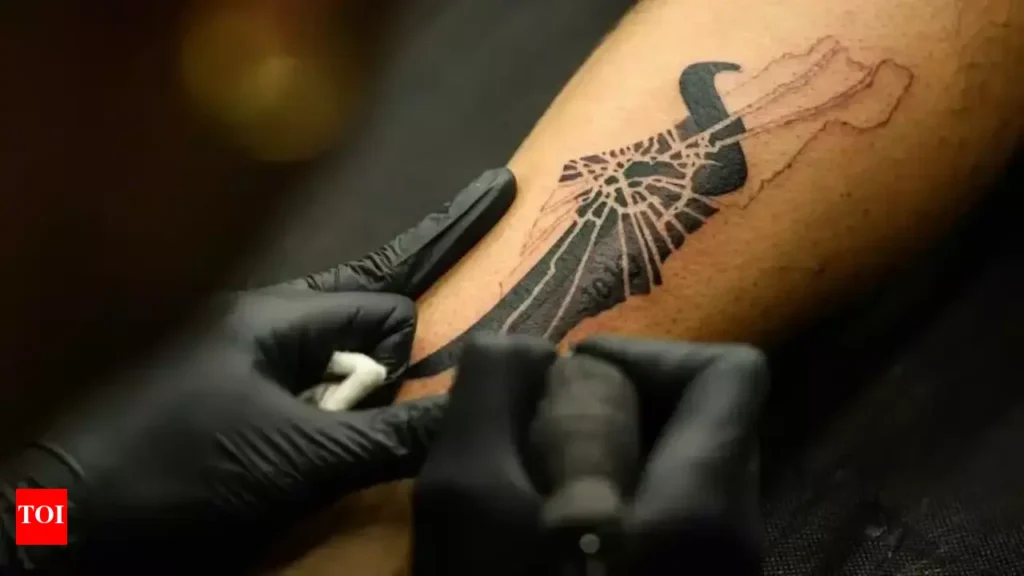Ministry lifts ban on tanning and tattoos a headline that has taken health enthusiasts, lifestyle fans, and regulatory experts by surprise. In a bold and unexpected move, the Ministry has announced the removal of restrictions that for years governed some of the most debated lifestyle practices, including indoor tanning services, tattoo parlors, and even the sale of certain razors.
The announcement has sparked a wave of mixed emotions — from excitement among young people and lifestyle advocates to cautionary concerns from health experts. But one thing is clear: the decision marks a cultural turning point in how personal health and freedom are regulated.
In this article, we break down the history behind the bans, why the ministry has changed course, how different groups are reacting, and what this could mean for the future of health and lifestyle regulations.
Why the Ban Was Put in Place
For years, the ministry enforced strict rules on activities such as indoor tanning and tattooing. The reasons were clear:
- Health Risks: Tanning beds have long been linked to skin cancer risks. Tattoos raised concerns over hygiene, infections, and unlicensed parlors.
- Consumer Protection: Authorities argued that tighter controls ensured people weren’t exposed to unsafe, low-quality services.
- Cultural Sensitivities: In some regions, tattoos and tanning were seen as lifestyle excesses, sparking debates about cultural fit and social acceptance.
As for razors, bans and restrictions were tied to safety standards and the type of products allowed in the market.
The bans, however, were increasingly seen as outdated, especially as international health bodies shifted toward education and regulation rather than outright prohibition.
Why the Ministry Lifted the Ban
The ministry’s decision did not come overnight. Officials cited three major reasons for lifting the bans:
- Evolving Public Demand
With younger generations embracing tattoos, sun-kissed looks, and body grooming, bans were seen as disconnected from reality. - Regulated Freedom
Instead of prohibiting practices, the ministry now aims to regulate and monitor them, ensuring that professional standards and hygiene are upheld. - Economic Opportunity
By legalizing and licensing these services, the government opens new doors for small businesses, salons, and tattoo studios, contributing to local economies.

Public Reactions: Cheers and Concerns
The lifting of the bans has divided opinions.
Critics Warn
- Medical Experts: Dermatologists caution against increased UV exposure from tanning beds.
- Public Health Advocates: Concerns remain about unregulated tattoo inks and infection risks.
- Traditionalists: Some argue that the decision erodes cultural values and encourages risky trends.
The Health Perspective
The ministry has been careful to stress that lifting the ban doesn’t mean ignoring health risks. Instead, new regulations are being introduced:
- Licensed Tattoo Parlors: Only certified studios with trained professionals will be allowed.
- UV Safety Guidelines: Tanning salons must use equipment that meets international safety standards.
- Age Restrictions: Tattoos and tanning will likely be limited to adults over 18.
- Product Standards: Only approved razor brands that meet safety criteria can be sold.
This shift echoes a global regulatory approach, where governments aim to balance freedom with responsibility.
Economic Ripple Effect
By reopening the door to these industries, the ministry is also unlocking new revenue streams:
- Tattoo Studios: Once underground, artists can now work openly, paying taxes and creating jobs.
- Beauty and Wellness Salons: Services expand to include tanning, adding new revenue lines.
- Retail Growth: Razors and related grooming products are expected to see higher sales.
Analysts predict that the combined industries could generate millions in annual revenue, while also attracting tourism from people seeking specialized services.
How Other Countries Handle It
The ministry’s move is not isolated. Globally, countries have shifted from bans to strict regulation:
- United States: Tanning beds are legal but heavily regulated, with strict age limits.
- Europe: Tattoo inks must meet chemical safety standards under EU law.
- Asia & Middle East: Mixed policies, with some nations restricting tattoos culturally but permitting salons with health oversight.
By lifting its bans, the ministry is aligning with international best practices — signaling modernization and openness.
What Could Be Next?
With bans on tanning, tattoos, and razors removed, the natural question arises: what’s next?
Experts suggest that other lifestyle practices could soon come under review:
- Piercing Regulations: Clearer licensing for body piercing shops.
- Cosmetic Procedures: Stricter but legalized rules for Botox, fillers, and aesthetic surgery.
- Alternative Wellness Practices: Legalization of wellness therapies once deemed fringe.
The pattern is clear — move from prohibition to regulated acceptance.
Voices from the Ground
- “This is more than a ban lift. It’s recognition of personal choice.” Tattoo Artist, 29
- “Health must remain a priority. Education is key, not just freedom.” Dermatologist, 45
- “Finally, we can expand our salon services legally.” Salon Owner, 36
Balancing Freedom and Responsibility
The Ministry lifts ban on tanning and tattoos not as a careless gesture but as a strategic shift. The balance now lies between personal freedom and
- Freedom: People can choose how they express themselves.
- Responsibility: Businesses and individuals must follow safety standards.
If managed well, this balance could mark a new era in lifestyle regulation.
Conclusion
The ministry’s lifting of bans on tanning, tattoos, and razors has ignited both enthusiasm and caution. Supporters celebrate newfound freedom and economic opportunities, while critics urge caution over health risks.
What’s undeniable is that this policy reversal reflects changing times. Culture, economics, and health policy are converging, forcing governments to adapt to evolving lifestyles.
Whether this gamble pays off will depend on how effectively authorities enforce safety regulations — and how responsibly the public embraces its new freedoms.
For now, health fans and lifestyle enthusiasts are dazzled by a future that looks brighter, bolder, and far more colorful.
Do follow us: Instagram
Read More: UAE Weather Alert: Extreme Heat to Hit 46°C in Dubai and Abu Dhabi This Weekend



